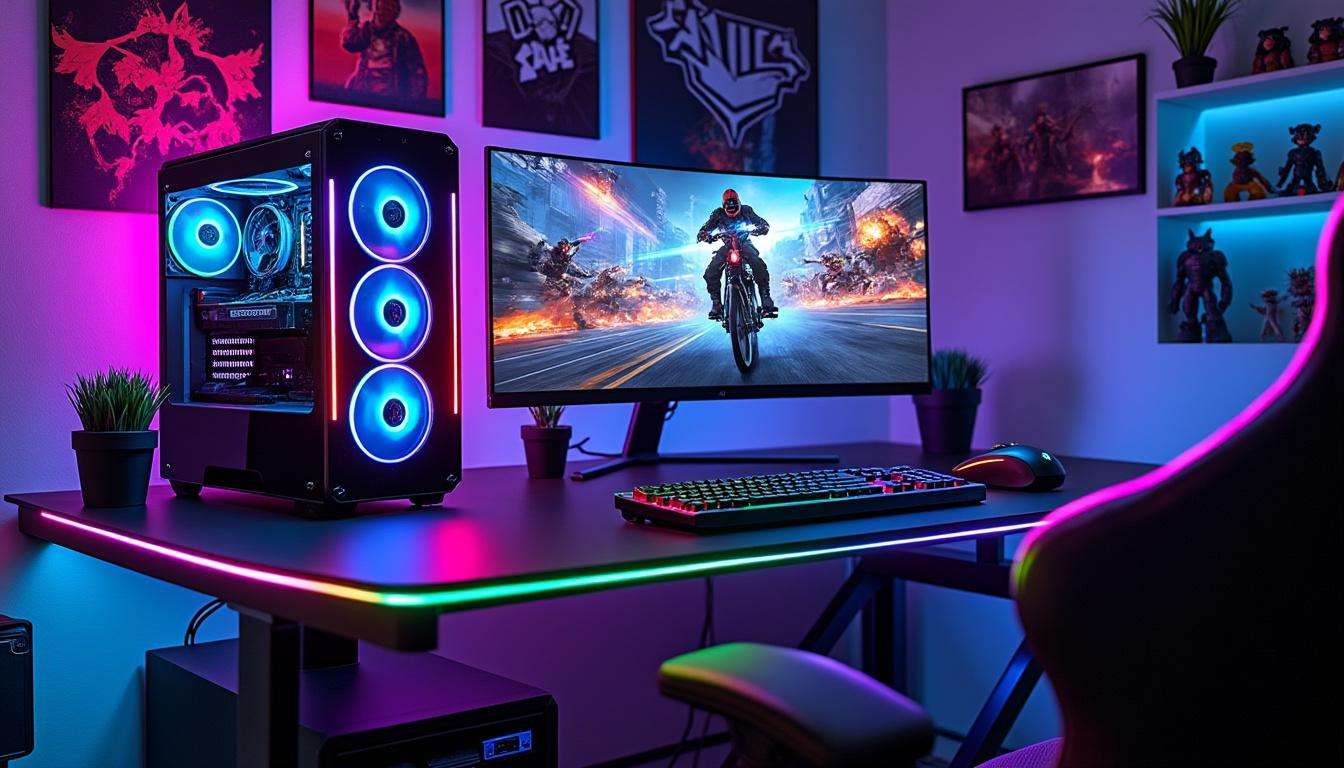Switching from console gaming to a gaming PC is no longer the niche choice it once was; in 2025, it’s becoming the preferred path for serious gamers seeking unparalleled performance, customization, and future-proofing. While consoles like Xbox and PlayStation still command vast audiences, the gaming PC ecosystem—powered by brands like Alienware, ASUS ROG, and MSI—offers a compelling alternative that enhances gaming experiences through superior hardware and software flexibility. The emergence of cloud gaming and evolving titles only adds to the allure, providing ever-widening access to expansive game libraries. As technology converges, understanding why making the leap from consoles to gaming PCs is wise hinges on exploring performance benefits, ecosystem advantages, and the freedom these machines deliver. This article unpacks those critical reasons, laying the foundation for any gamer contemplating a transition in a market shaped by innovation and choice.
Unmatched Performance That Console Gaming Can’t Rival
The core attraction of gaming PCs lies in their superior hardware capabilities. Unlike consoles with fixed specifications, gaming PCs feature components from market leaders—such as NVIDIA GPUs, Corsair RAM, and Gigabyte AORUS motherboards—that can be upgraded to maintain cutting-edge performance. This flexibility means players enjoy better frame rates, sharper graphics, and higher resolutions, translating to immersive gameplay.
Benefits of gaming PC hardware include:
- Variable GPU and CPU configurations allow for personalized power tailored to game demands.
- The ability to enable ray tracing and HDR for enhanced visual fidelity, unmatched by most consoles.
- Overclocking options that boost performance beyond factory settings.
- Wider selection of peripherals from brands like Razer and HP Omen, letting gamers customize controls and displays.
This hardware superiority is evident in the growing number of titles optimized for PC, demonstrated by trends in games like The Witcher 3’s PC version surpassing console editions in detail. Such optimizations can require the expansive power that only modern PCs offer. In scenarios where frame-rate precision and quick response times matter most, this edge defines competitive advantage, a key reason why many switch from consoles.
Freedom of Customization Bridges Diverse Gaming Preferences
Customization is arguably where PCs shine the most compared to consoles. Unlike consoles locked to standardized controls and interfaces, PCs are playgrounds for personalization accessible down to software configurations and gaming environments. Whether tweaking graphics settings or integrating advanced mods, this adaptability amplifies how games feel and perform.
Customization highlights include:
- Choice of peripherals like keyboards and mice from Corsair or Razer to fit your mechanical preference or ergonomics.
- Wide array of monitors with varied refresh rates and resolutions, including ultra-wide and 4K displays.
- Access to modding communities that expand games with new content and fixes, extending longevity.
- Software tools that optimize game capture, streaming (important for pros), and system performance.
Take, for example, Lenovo Legion users who benefit from seamless software utilities that pair hardware performance with game-specific enhancements. Unlike closed consoles, this level of freedom allows gamers to tailor their approach to suit both casual and hardcore styles. For a glimpse of hardware options shaping this diversity, check out the latest gaming productivity and gadget setups on Only-Gaming’s gadget review page.
Access To Broader Game Libraries And Ecosystem Integration
Another compelling reason to switch to PC is the access to a vast ecosystem of games from platforms like Steam, Epic Games Store, and Origin. Console-exclusive titles have their merits, but PC gaming offers diverse genres from AAA blockbusters to indie gems without restrictions.
Advantages of PC gaming ecosystems include:
- Cross-platform titles that allow you to play seamlessly with friends on other devices.
- Frequent sales and bundles offering better value and expanding your library economically.
- Early access and beta tests that PC gamers often enjoy before wider releases.
- Backward compatibility with classic titles, remasters, and even mods that reimagine old favorites.
For instance, rumors around Xbox gaming PC integration demonstrate how consoles and PCs are increasingly linked, enabling streamlined access to cloud-based gaming and shared libraries (source). Players looking at upcoming launches and expansions—including those from August 2025’s releases—will find PCs a superior platform to keep pace with expanding game ecosystems.
Enhanced Multitasking And Entertainment Beyond Gaming
Gaming PCs serve as versatile hubs not only for gaming but for multitasking and media consumption. Their hardware supports streaming, content creation, and productivity applications, making them indispensable for gamers who also juggle other digital activities.
Multifunctional capacities include:
- High-performance streaming with built-in capture capabilities.
- Video editing and graphic design using the power of NVIDIA’s RTX cards.
- Support for multiple displays to manage chat, browse, and game simultaneously.
- Access to vast software libraries for entertainment and communication beyond gameplay.
The ability to effortlessly shift between gaming sessions and live streaming or social media engagement enhances the overall user experience. The rise of cloud gaming and services accessible via PC, as discussed in modern cloud gaming breakdowns, further cements the PC as the future’s ultimate gaming and entertainment machine.
Investing In Longevity: Future-Proofing Your Gaming Experience
Console life cycles are limited, typically lasting 6-8 years before the next generation arrives with new hardware demands. In contrast, gaming PCs are infinitely upgradable. By building or purchasing a PC from respected manufacturers like Acer Predator or MSI, players can update individual components as games evolve in system requirements, avoiding the frustrations of obsolescence.
Future-proofing advantages include:
- Modular designs permit upgrading GPUs, CPUs, RAM, and storage independently.
- Strong online support from communities and brands like ASUS ROG and HP Omen for hardware troubleshooting and performance tuning.
- Compatibility with emerging technologies like VR and next-gen AI-powered games.
- Access to the latest peripherals and software advances without needing a wholesale hardware overhaul.
Without the need to buy an entirely new system every few years, this approach saves money over the long term while providing continuously elevated gameplay. More details about the evolving market and PC gaming’s thriving ecosystem are explored in Only-Gaming’s analysis of PC gaming trends.

